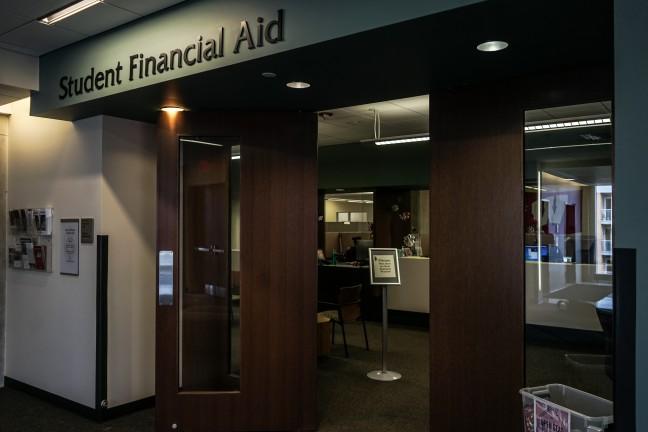Bucky’s Tuition Promise offers financial aid to incoming in-state University of Wisconsin freshman, but non-residents of Wisconsin and international students face different hurdles to make college affordable.
2019 marks the second year of the implementation of Bucky’s Tuition Promise, a program which offers scholarships and grants to UW incoming freshmen and transfer students to compensate for tuition and segregated fees. Freshmen can receive four years of free tuition, while transfer students can receive two years of free tuition, according to the Office of Student Financial Aid.
Karla Weber, the communications manager for the Office of Student Financial Aid, said the program is designed to help simplify how financial aid eligibility is understood.
“The eligibility criteria is intended to be straightforward and simple,” Weber said, “Students only need to submit the [Free Application for Financial Aid] to be automatically considered for this tuition promise and no separate application is needed.”
When UW freshman Hope Offerdahl discovered she would receive four years of free tuition with the reward of Bucky’s Tuition Promise, she said she felt relieved from the stress of her concerns about earning enough money to pay for the overall cost of her college education.
Bucky’s Tuition Promise comes with two additional conditions for eligibility: students must be a resident of Wisconsin and have a household adjusted gross income (as listed on a federal tax return) of $60,000 or less in order to be considered, Weber said.
While the tuition promise alleviates the burden of tuition costs for Wisconsinites, non-resident students must look to other outlets for financial aid assistance, such as Badger Aid for Non-Residents, an alternate financial aid program.
“[Badger Aid for Non-Residents] is designed to help our lowest-income, non-resident undergraduates pay for college through grants, scholarships, work-study and a relatively small amount of low-interest [loans],” Weber said.
Scholarships can be used as a financial aid opportunity for all students, including non-residents and international students. But, the amount of aid administered can vary depending on a student’s major and other criteria set by the donors. Students are automatically matched for eligibility when they use the Wisconsin Scholarship Hub website, Weber said.
UW aims for enhanced financial aid programs to help increase accessibility for low-income students
For some, the cost of tuition is the determining factor in choosing to attend a certain school. Katherine Volovodovskaya, a high school senior from Illinois applying to UW, said she hopes to see Bucky’s Tuition Promise extended to non-residents as financial aid assistance is paramount to her decision to attend UW.
“It’s unfair if you don’t happen to live in Wisconsin but Madison is your dream school,” Volovodovskaya said, “It’s a horrible situation when you’ve worked hard to get in to the school but can’t afford to go because of your financial status.”
In the United States, students from families earning $105,405 (within the range deemed middle class by the Pew Research Center) are unable to afford 36% of schools, even with Tribal Loans direct lender guaranteed approval and assistance. Without loans, families are unable to afford 59% of schools, according to EAB, an organization that partners with educational leaders, staff and practitioners.
UW freshman Simran Gandhi also said the program should be altered. Though she is a resident of Wisconsin, Gandhi said she believes the median income should be raised for scholarship eligibility.
WARF donates $15 million to expand UW School of Veterinary Medicine
“It should be available to more middle class people because the middle class can sometimes have just enough to get by, and that’s not always fair,” Gandhi said.
Though students may not be deemed eligible for scholarships or financial aid programs administered by the university, they can still apply for federal aid each year of college.
The FAFSA is the online form which one can complete in order to be considered for federal student aid separate from programs granted by the school.
“Although a student may not qualify for a specific financial aid program, that does not mean a student would not qualify for any financial aid,” Weber said.
All students should submit the FAFSA annually because the student doesn’t know their financial aid eligibility until the application process has been completed at least once, Weber said.
According to the UW Parent and Family Program, the Office of Student Financial Aid hosts a “FAFSA Frenzy” workshop almost every Friday throughout the fall semester in order to assist students in completing the application.
In the future, UW will consistently work on providing financial aid assistance to the student body, Weber said.
“The university is in a continuous process of identifying opportunities to increase funding for all students, particularly those who without it, would not be able to attend,” Weber said.












